Deaf Koalas: Lockyer Valley goalie to represent Australia in Deaflympics
Justeen Kruger doesn’t know what caused her hearing to dramatically decline in her late 20s but as a professional soccer player it has changed her life on and off the field. Without government funding for deaf athletes she is on a mission to get herself to the 2025 Deaflympics.
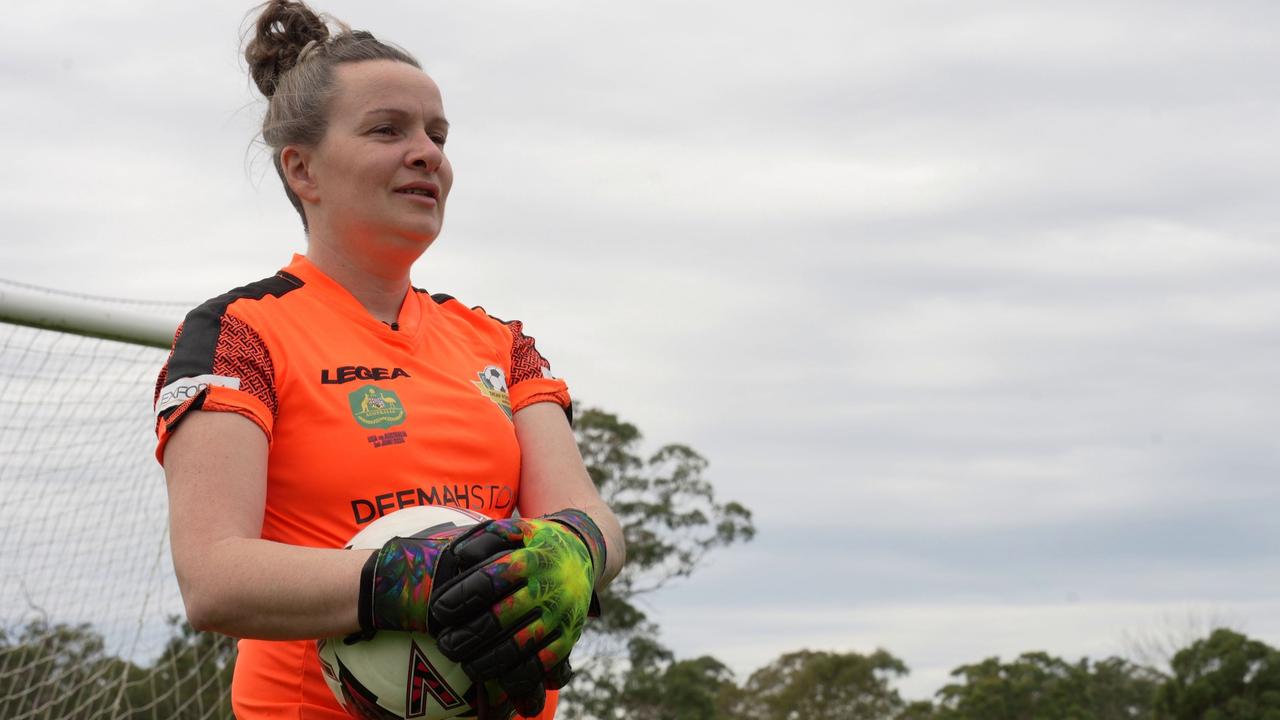
Local Sport
Don't miss out on the headlines from Local Sport. Followed categories will be added to My News.
In her late 20s Justeen Kruger found out she had a hearing impairment, and with no known cause she has had to adapt her life as she continues to lose more and more of a sense she took for granted.
The now 36-year-old Lockyer Valley goalie has been playing soccer since she was eight, but in the past few years the deterioration of her hearing has affected her both on and off the field.
Kruger, an ex-SWQ Thunder player, now plays for North Brisbane FC and will be playing for the Deaf Koalas at the Deaflympics this year.
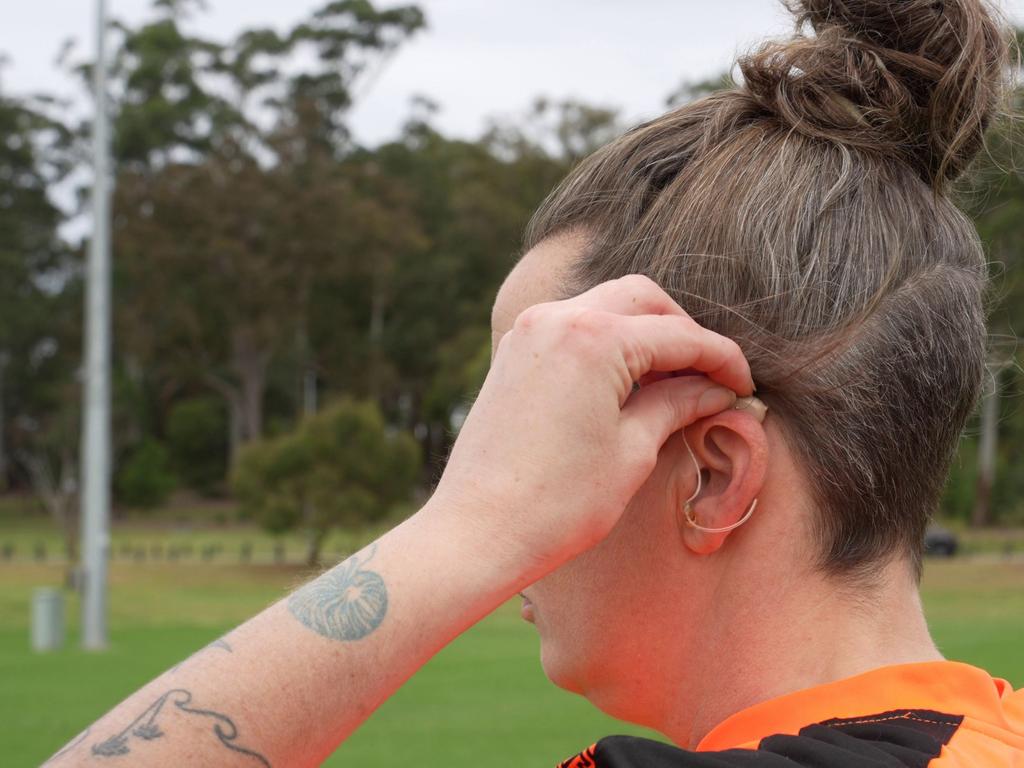
It was a few of her friends that first picked up on Kruger’s hearing and suggested she get it tested.
“It turned out that yes, I did have a slight hearing loss and over the last 10 years it has dramatically declined,” she said.
“Kids born with hearing loss get taught how to be part of the world and to sign and whatnot, but I’m having to adjust year in year out to my hearing loss. It’s really hard.”
Kruger has come to realise how much she relied on hearing while playing soccer.
“On the soccer field if I’m getting the ball to throw I can’t hear someone on the other side saying ‘I’m free’,” she said.
“I can’t hear a player running towards me so you just need to be switched on mentally and physically the whole game.
“When the ball is coming at you, you have to make those fast decisions as a goalkeeper.”
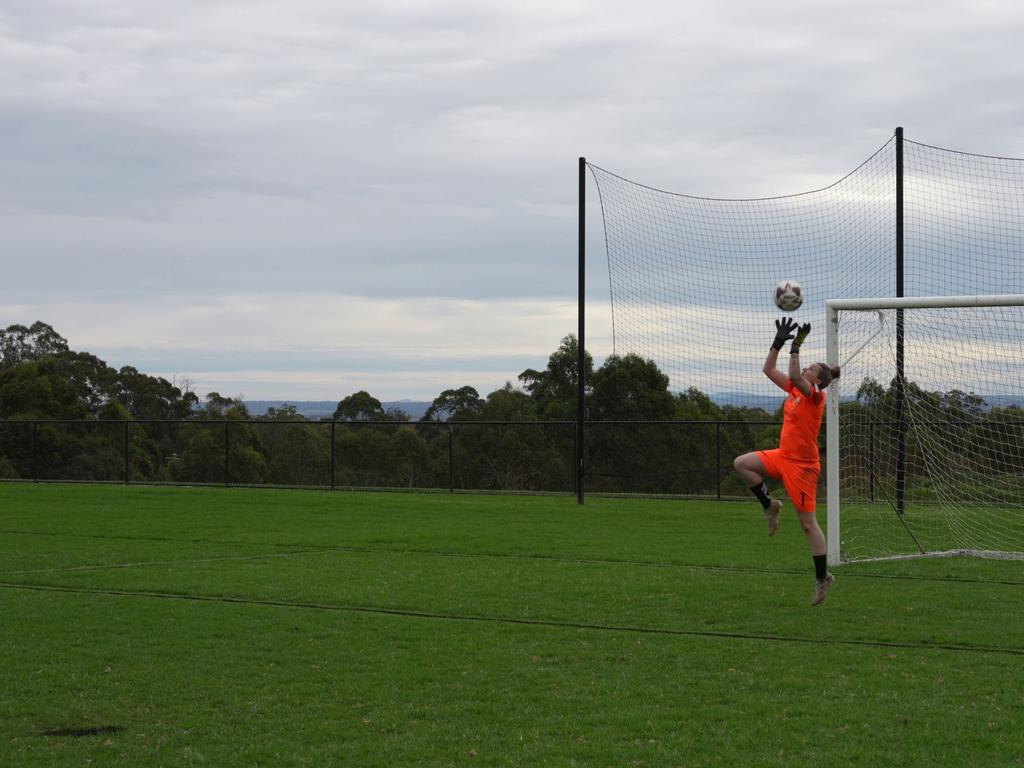
Kruger said there were a lot of things she took for granted before she started losing her hearing.
“I don’t like going out for dinner with friends, I can’t hear. It’s just background noise,” she said.
“It’s also simple things like crossing the road, you have to be so much more aware.”
Australian Deaflympics athletes don’t receive any government funding, and having been chosen to represent Australia in the Deaflympics in Tokyo in November Kruger will have to pay the travel costs herself.
“We’re not classified as para so to get to the Olympics the cost falls on each player individually,” she said.
Deaflympics have been running every four years since 1924, yet there is still no government funding for Australian athletes in the international competition.
Ahead of the recent election last month, Deaf Sports Australia has called for government commitment to funding a high-performance pathway program for Australian deaf athletes.
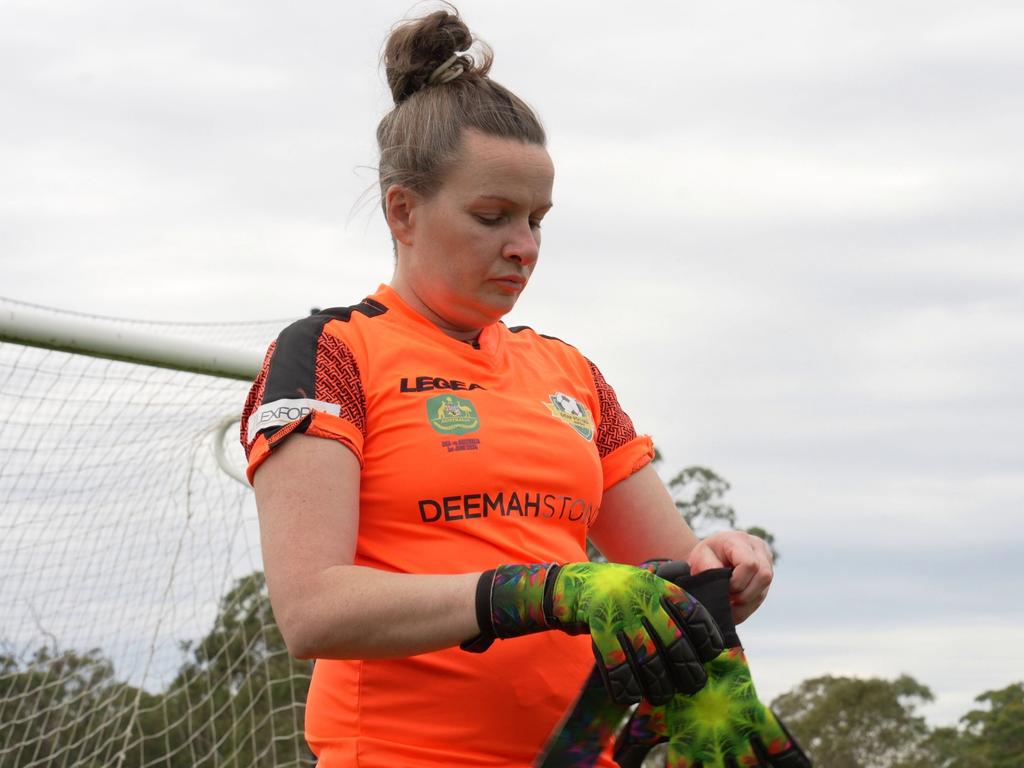
Kruger said women’s sport has come a long way in the past few years, in large part thanks to the popularity of the Matildas in the 2023 Women’s World Cup.
“Women’s sport is just growing in leaps and bounds,” she said.
“It’s undeniable, and not just for football – it’s all sports.
“We used to have eight women and now we’re having to turn players away because of availability.”
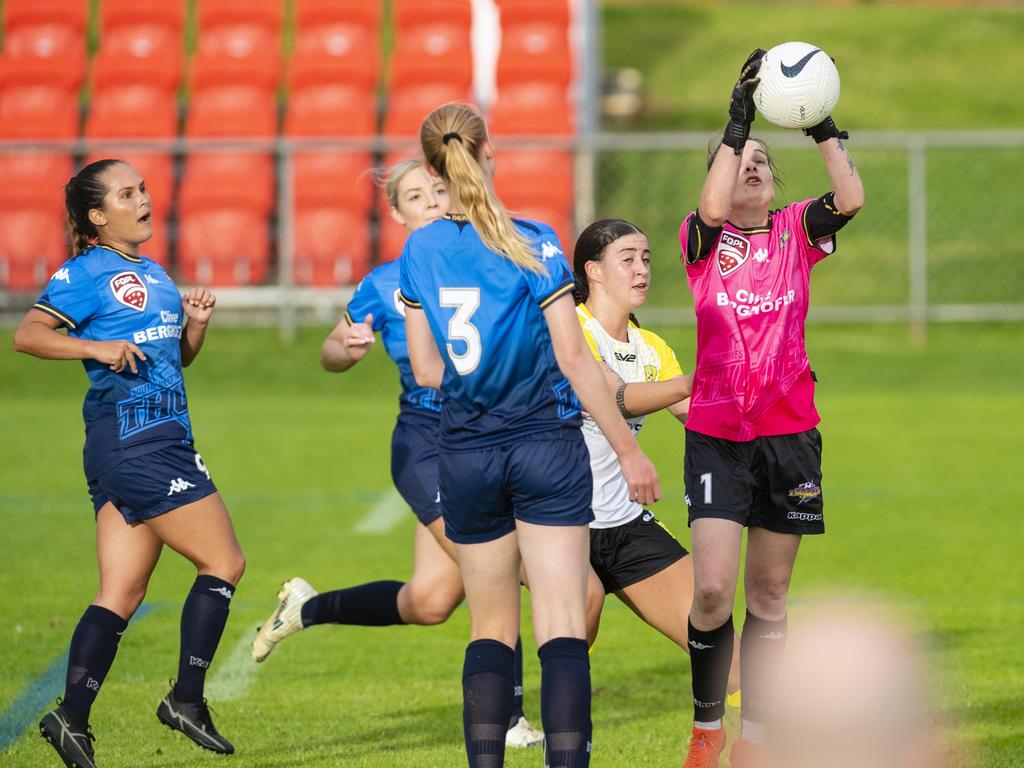
Despite seeing the popularity of women’s sport grow Kruger said there’s still a long way to go in supporting deaf athletes.
“A lot of deafness or hard of hearing is genetic and that’s not going away,” she said.
“A lot of players hard of hearing they stop playing at about 18.
“At 18 it becomes quite competitive but if you can’t hear on the field and other players don’t have an understanding then we’re more subject to bullying.
“More government funding would help keep deaf and hard of hearing players playing football.”
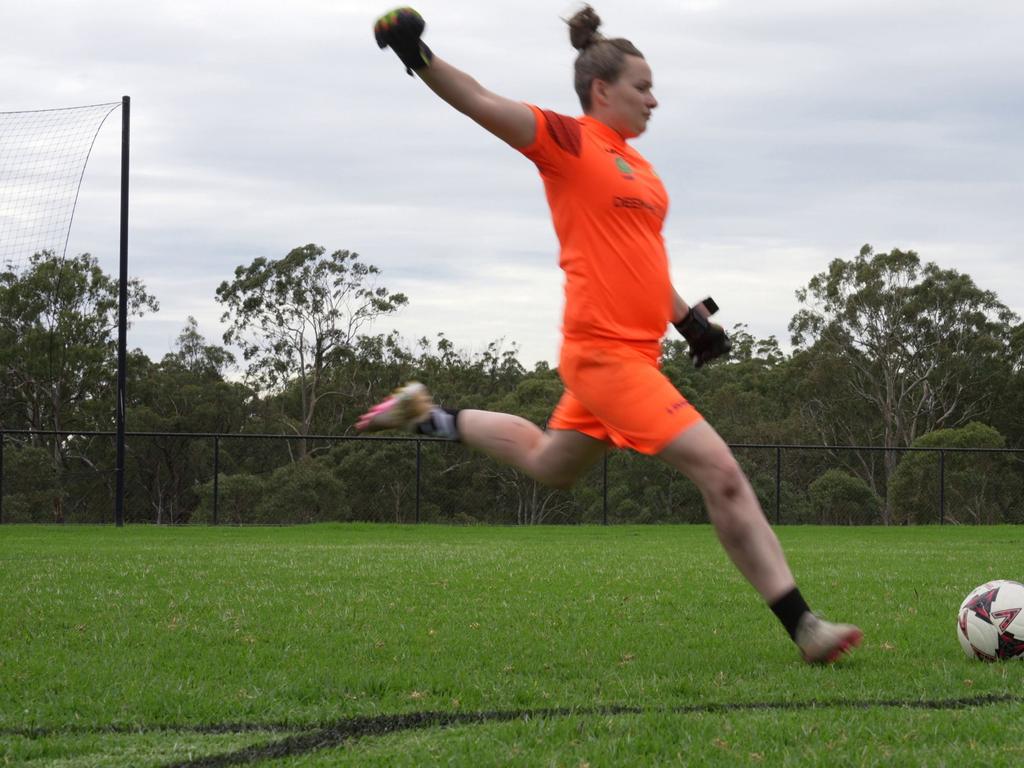
To be able to go to the Deaflympics Kruger needs to raise $10,000. Kruger has been working on a fundraising raffle, she is selling Jolly Soles socks, and is looking for a sleeve sponsorship.
Donations can be made here.






